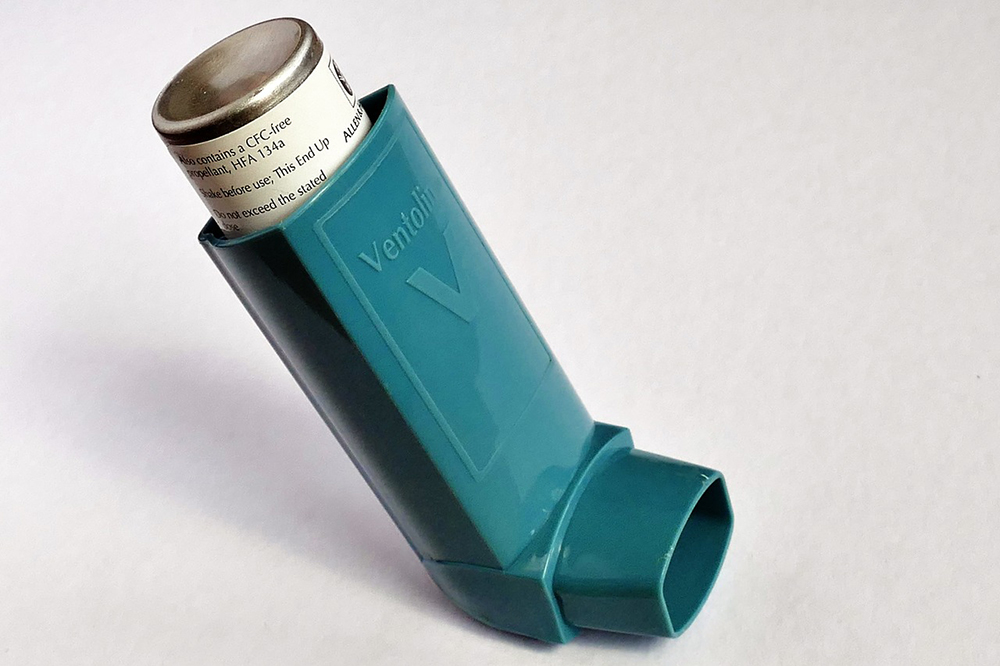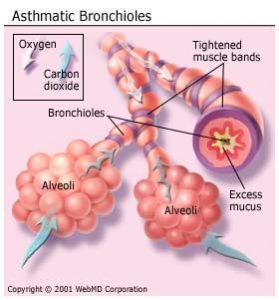
Is Stress at Work a Contributing Factor to Triggering Asthma Attacks?
World Asthma Day, 2nd May, hopes to create awareness of the problems asthma sufferers have in their everyday life, by being aware can help save lives and I’ll tell you why!
Show me a person who says they don’t have any workplace pressures or worries and I’ll show you a liar; add the burden of asthma and you have a protentional hazard waiting to happen.
Take a moment to consider who you know with asthma and what would you do if they had an attack?
First Let’s consider what triggers an asthma attack;
What is Asthma? You could say that someone with asthma has ‘sensitive’ airways that are inflamed and ready to react when they come into contact with something they don’t like.
Allergies, of course, are considered to be the most common, approximately 60 percent of asthma cases are caused by allergies to dust mites, mold, pollen and animals.
Smoking environment, illness, over exercising or over working are a different type of triggers, as are;
- Sulfites: These chemicals are found in wine, beer, shrimp, dried fruit and processed potatoes, and can cause breathing difficulty for many people with asthma.
- Medications: Some medications, such as aspirin or beta-blockers, can trigger asthma flare-ups. Talk to your doctor if you think a medication may be causing asthma symptoms.
- Strong smells: Perfumes, sprays and cleaning products can make asthma worse
(http://www.webmd.com/allergies/sulfite-sensitivity)
The latter mentioned run into to occupational asthma:
- Vehicle spray painting
- Workers in bakeries
- Woodworking
- Healthcare work; Latex -Diathermy
- Working with animals
- Working in agriculture
- Engineering; (MWFs)
- Soldering
- Hairdressing
These are just some occupations, of course, the list is not exhausted but the employer should recognise, identify and control these hazards.
They are several studies that show stress and anxiety in the workplace induce a physical and mental instability; this, in turn, is intensified in sufferers from asthma. These attacks can lead to embarrassment and humiliation if they happen at work in front of colleagues and friends; a study made by The Utah Department of Health suggested that in general, additional time off work due to an asthma-related incident inevitably leads to depression and a spiraling downward trend to the individual’s health and wellbeing.
What is the remedy? They are no quick fixes but more of a general change in attitudes towards asthma sufferers. I’ve been on many First Aid courses over the years and I can’t remember ever been shown what to do with a victim of an attack, how to identify a person having an attack or the aftercare of any personnel when returning back to work after an incident.
Asthma prevalence is thought to have plateaued since the late 1990s, although the UK still has some of the highest rates in Europe and on average 3 people a day die from asthma.
In 2014 (the most recent data available) 1216 people died from asthma.
The NHS spends around 1 billion a year treating and caring for people with asthma.
How to identify an attack
The person may start to coughing/wheezing
Are gasping for air/very short of breath/can’t get enough air
Feel tightness in the chest
Have trouble speaking in short sentences
Younger children may complain that their chest or tummy hurts.
What to do in an asthma attack
Sit up straight – don’t lie down. Try to keep calm.
Take one puff of your reliever inhaler (usually blue) every 30-60 seconds, up to a maximum of 10 puffs.
If you feel worse at any point while you’re using your inhaler or you don’t feel better after 10 puffs or you’re worried at any time, call 999 for an ambulance.
If the ambulance is taking longer than 15 minutes you can repeat step 2.
If you go to A&E (Accident and Emergency) or are admitted to hospital, if possible take your written asthma action plan with you so staff can see details of your asthma medicines
(https://www.asthma.org.uk/advice/understanding-asthma/symptoms/)
When returning to work
Produce a plan to reintroduce colleagues back into the workplace
Explain to them your contingency plan in the event of another attack
Provide them with information on trained personnel and medical provisions available
If you live with or live with someone affected by asthma we all know that no one needs additional stress in their life so if we work together we can minimise the distress of this condition; remember asthma can affect anyone at any time in their life and that could mean you, so be aware, be prepared and be safe.
If you want more help on your Health & Safety policies why not get in touch today?


Leave a comment